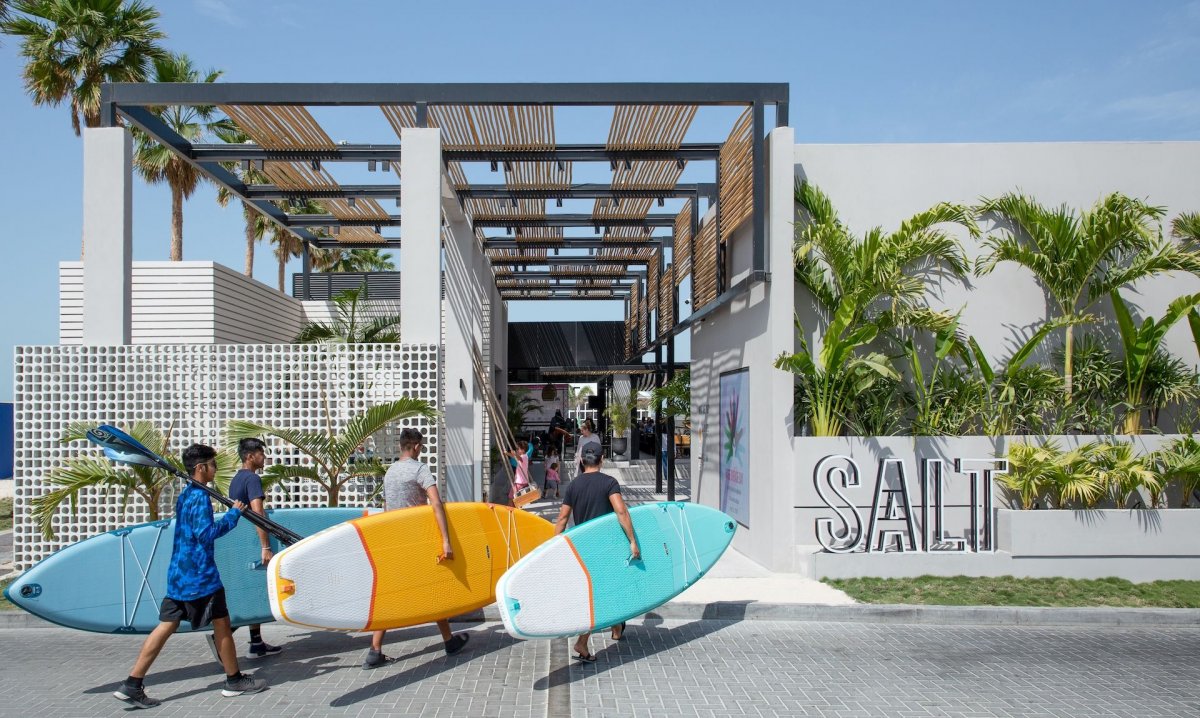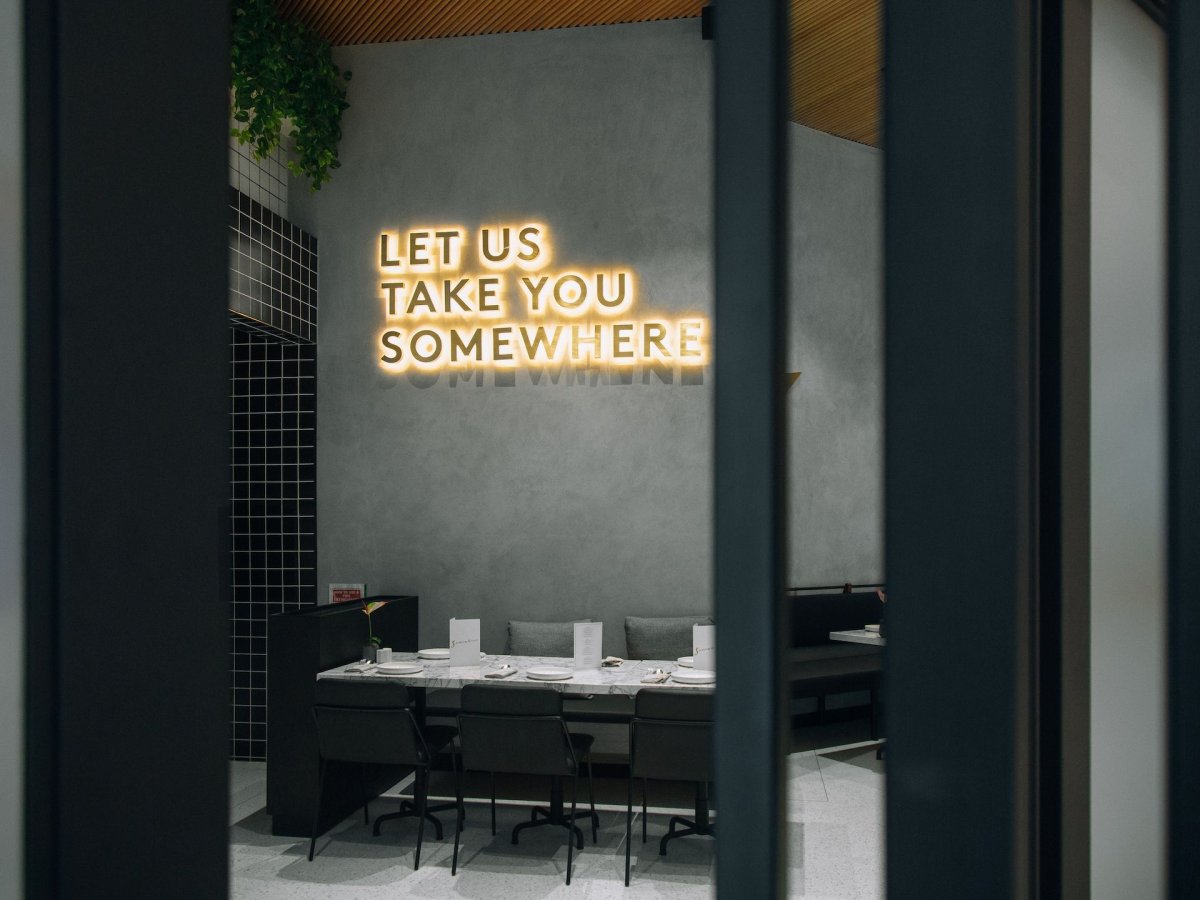THE MENU: TWO EMIRATI WOMEN WITH A WINNING FORMULA
Amal Al Marri and her business partner Deem Al Bassam are two of Dubai’s most successful entrepreneurs. Their hospitality brand, The Independent Food Company, is famed across the city for its innovative dining concepts such as summer seaside shack Salt and Public, a youthful new destination for food and entertainment. However, it’s their commercial savvy that has allowed them to navigate the system and create six brands across a score of locations in Dubai and Saudi Arabia. We spoke to Al Marri about the secret to their success.

Why The Independent Food Company?
Our company is called the Independent Food Company because we create concepts from scratch, and we don't believe in franchising. This is not very popular, especially in this part of the world. We believe that franchising doesn't give us the freedom and flexibility. Creating a concept and having that freedom is important in entrepreneurship. That's why it’s called ‘Independent’. We operate in both UAE and Saudi Arabia and at the moment we have six brands under our umbrella.
The brand is the same as your concepts, right? It’s interesting, the lifestyles that are attached to your concepts.
What differentiates us from others is that we create brands with purpose, we have a reason to exist. Our main mission is to change the dining landscape. Deem started Switch back in 2008 and it was designed by Karim Rashid. The most popular restaurants in Dubai back then were Cherries and Fridays and we were a part of that. People didn't understand creating new dining concepts and it was very hard to benchmark. With Switch, the journey was totally different. The perception was, being in a high traffic area will make work and honestly, Deem had to learn the hard way. It's not about the location; it’s not even about getting a Michelin star chef or someone fancy. We realized that succeeding in this business is really understanding what people want and standing out from ‘the normal’. What Deem got right was going with an international designer. Fine, take a location in Dubai Mall; fine, get the best chefs. But that didn't make it easy. Back then, there was no Instagram and people were on Blackberries, so marketing was different. People trusted international brands more than local brands.
What happened to change this culture?
There was a turnaround when Deem introduced the Nutella bar and changed the direction of food from being very fancy into more interactive, more fun. That was new to the food market in 2008. But when I joined Deem, we wanted to do the total opposite of what Switch did. With Salt we really wanted to make more of a lifestyle destination. We wanted to see what was missing at the time in 2014. When people were driving to shopping malls, we wanted to take people back to basics and back to the simple life. So, when we say, “changing the dining landscape,” we mean taking a location that no-one would ever think about. People laughed at us. They would say, “Come on, it’s summer all year round, how will you succeed?”. But we truly believed that a simpler location by the beach was what was missing. We named it Salt because it’s a basic ingredient. The campaign started by imagining life without salt which is what we asked people. We also asked people, what is the water for life? It was family, it was any sort of lifestyle at the beach or reading a book or playing sports. We've built our brand based on the pillars that people asked for. That's why you see us existing in more lifestyle destinations and we do a lot of collaborations and community work.

Tell us more about this independent food movement that you're championing.
What we try to do is offer experiences, as clichéd as that sounds. It’s not, because what we offer, especially in Salt, is a mix of entertainment and activation. We do a lot of pop-ups and partnerships. We’ve done collaborations with Skims and Fenty, for example. Salt is the vehicle that brings a lot of things together. Another thing about this movement is that people are not used to standing in a queue and we actually encouraged this. Not to make their life harder, but to create a more simplified experience. The way we developed Salt is that we looked at what we used to do when we travelled. We would grab something, we would sit in a park, on a bench, we’d sit outdoors. Such things did not exist here in Dubai or in Saudi. If you want to open something, you need to be in a mall. We searched for locations to open a restaurant when even the government couldn't support it, because it didn’t fall under any criteria.
Taking land on the beach was never an option, but that's what we tried to do, to find locations that people didn't dream of looking at. That was a movement. The food truck movement wasn't legalized at the time. The government was scared that we would open one and we would move between different spaces and locations. But that wasn't the intention. We actually made them legalize food trucks in a stationed location, or to be part of event licensing. That's something we did. After Salt, you would see a lot of other food trucks popping up. I think that really helped a lot of people start their own business. What we were trying to also prove is that you can experiment with pop-ups and low investment projects, but you need to be prepared to grow as well. That's what we learned from Salt.

It sounds like you've been at the vanguard of the restaurant industry from the beginning. Can you describe how this industry of restaurant and hospitality has changed from before?
People didn’t see it as a business. Opening a restaurant wasn't something entrepreneurs would think about. Seeing Switch and Salt in their initial stages, we inspired a lot of people to take that step forward. To see how we can really change, because the only restaurants you had before, you would just eat and leave. Back then, we would only go once or twice a week to eat out and it was a family thing. But now things have changed. You eat out all day and there are more concepts, it's more open.


Tell us about your other restaurants.
We started Parkers in a park. What we do differently with our campaigns is that we create while we are opening. With Parkers, you couldn't enter unless you had a key, and we were hiding the key in different parks around the city. That meant people would go back to the parks they grew up in. Everyone in Dubai grew up in parks, but all of a sudden, people stopped going. We wanted to take that back. We started in a park, and then we opened in a mall. Recently we closed the one in Dubai Mall and we opened in another park, which we are developing for the next season. We realized that actually, people prefer being outdoors and that's what backs up our concepts. This was exciting, because we were going back to the main mission we started with. Then we have Somewhere which is more of a travel concept. Our aim is to actually become a hotel. With every brand we have an open mind about where it could go. Parkers taking over parks, Salt taking over beaches, Somewhere as a hotel. Then we have Public, our most recent venture, which really attracts the younger crowd, from DJs to artists and designers. We try to collaborate with them in terms of branding, so they come to DJ in the space and so on.


